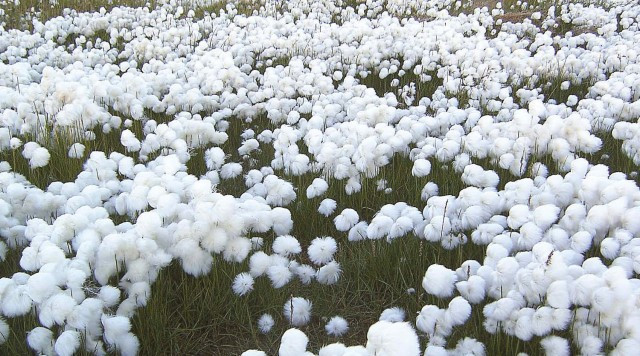Pakistan cotton crop failure hands opportunity to India
Armed with a bumper crop after a good monsoon, Indian groups are expected to begin exporting to Pakistan from October.

Indian producers will seek to take advantage of a government decision last week to lift a ban on exports to help meet demand from Pakistan's textile industry.
The restriction was imposed in April to keep domestic prices down. Armed with a bumper crop after a good monsoon, Indian groups are expected to begin exporting to Pakistan from October. "We are 100 per cent ready to meet Pakistan's appetite," said Dhiren Sheth, president of the Cotton Association of India, whose members include more than 400 leading cotton growers, ginners and exporters.
Pakistan's textile sector, which accounts for 60 per cent of the country's exports, is likely to be hit due to damage to the cotton crop, which could be 20 per cent below usual, according to analysts.
"Large fields of cotton have been washed away by the floods," said Ibrahim Mughal, analyst with Pakistan's independent Agri Forum organisation. "We will be short of about three million bales, which will burden our already fragile economy by at least one billion dollars," Mughal said.
The worst natural disaster in the country's history has already affected 20 million people in nearly a month of flooding and left 1,500 dead by official count. Five million people have been made homeless across the country, but that figure could surge if the swollen Indus river, whose fast-moving waters are piling pressure on sagging embankments, continues to fill up.
The flooding in Pakistan may result in agricultural losses of nearly three billion dollars, its agriculture ministry has said, with the main farming region of Punjab particularly damaged. "We have been importing cotton from India for the past few years now and should do the same now when we face a huge crisis," said AB Shahid, an independent economist based in Pakistan.
Pakistan is one of the main importers of cotton from India, which is the second largest producer of the crop worldwide after China. Some mills are already calling for "regulated" exports, however, fearing a spurt in demand from Pakistan could send prices soaring in India.
"India should export only surplus. If the government does not regulate exports, the situation may get out of hand," said IG Duria, corporate general manager with the Punjab-based Vardhman group, a leading mill.
Cotton prices are at a peak for the year, up by 12 percent in August compared to levels last month. Analysts forecast India will produce nearly 32 million bales of cotton in 2010-11, against 28 million bales in 2009-10.
Farm output is expected to rise in India owing to plentiful monsoon rains -- a great relief to hundreds of millions of Indian farmers who struggled with the weakest rains in 37 years in 2009.
Indian inflation, after hitting double figures earlier this year because of high food prices, is now in decline, but is still the highest of the Group of 20 nations at 9.97 percent.
"Exports may be capped if September rains hurt the crop," said Mehul Agrawal, agri-commodities analyst with Mumbai-based brokerage Sharekhan. Earlier this month, India offered five million dollars in flood aid to Pakistan, which Islamabad said was a "very welcome initiative".
India and Pakistan have taken steps to improve a problematic relationship that was strained by the 2008 Mumbai terror attacks, which India blamed on militants from Pakistan.



















COMMENTS
Comments are moderated and generally will be posted if they are on-topic and not abusive.
For more information, please see our Comments FAQ